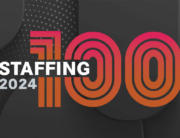Joanie Courtney, senior vice president of global market insights for Monster Worldwide, explains why employer branding has become so important, how a strong brand benefits employers, and how companies can initiate a branding strategy.
 Q: What is an “employer brand”?
Q: What is an “employer brand”?
A: It really is the identity of a company. The employer brand and the corporate brand are almost merging. It’s not only the products or services they’re selling, it’s also about their culture and reputation — what it’s like to work there. Q: Why is employer branding important today?
A: Employer branding is one of the most important initiatives for CEOs as they think about how they are going to attract, recruit and retain talent. Today a potential employee will look at the company website, but they’re also going to other sources to get the inside scoop. There is salary information out there, for example, that wasn’t accessible before.
Twenty years ago, very strong brands like Coca Cola or IBM were known for the products they were selling. Today, employer branding ties more to the company’s culture: the reputation they have as an employer. Employers need to create that positive experience for their employees — and then they need to get their employees to share the reasons they want to work there. This helps build a positive reputation and will attract talent.
Q: Are millennial employees the primary audience for employer branding, or is this important to all workers?
A: Employer branding is important for all generations. However, millennials would quickly go to social media to learn about an employer brand and the employee experience, whereas a baby boomer might check the employer’s website first.
Q: How has employer branding changed in recent years?
A: Employer branding has really grown over the last 10 years or so due to social media and the transparent world we live in. It’s very easy for any potential employee to research a company and see what their current and past employees are saying: Does this company have a positive culture? Do they treat their employees right? Or is it a negative experience, with high turnover rates and really long hours?
Also, in years past, marketing departments did not have to work so closely with the talent acquisition team. Today we’re seeing marketing and talent acquisition really coming together, and their budgets are also coming together.
Q: What are the steps companies need to take to initiate a branding strategy?
A: First, you want the initiative to come from the top, with the strategy truly owned at the executive level.
You want to measure your employer brand, both internally and externally. It’s good to have that baseline when you first start out.
Knowing your corporate culture and being able to explain what your brand means is also crucial.
Make sure that you have a great career site and that you’re creating a positive experience through social media. Once those things are done, the magic can happen. You can get your current employees to be your biggest brand ambassadors.
Q: What should a company do if its initial measurements indicate that the company is not regarded as a good place to work?
A: It is a challenge for an employer that may not have a good reputation in the marketplace — it’s going to be extremely difficult to recruit talent to their organization unless they address and fix it.
The problem might be that it is a great place to work but the company needs to do a better job of sharing all its positive qualities. Or it could be that the company needs to focus first on fixing its culture and letting the external world know that the company is committed to being a great employer.
Q: Staffing firms recruit workers to work for the client. How does this play out in terms of a branding strategy?
A: First, as a staffing firm, you want to create a very positive experience: online, through social media, on your career site. You want to have a great reputation of being a fantastic staffing firm to work with. Because just as employees are looking at jobs they might want to take, if employees are working for a staffing firm, they’re checking out the staffing firm too: Can I trust them? Will they treat me fairly? Will they give me respect? The second part is that since staffing firms are placing candidates on a job at one of their clients, that person is going to be checking out the client company as well. Staffing firms can coach their clients to help them promote their employer brand. The staffing firm has a great opportunity to be the expert.
Q: What do job seekers look for on social media?
A: Job seekers go to social media to see who is hiring. They are also looking to learn about the employer’s reputation and employee satisfaction.
Q: Can employee branding succeed without social media?
A: Due to the transparency that social media creates, I think it’s here to stay — it’s part of the employer branding process. Employer branding probably wouldn’t exist without social media — but it’s not to be confused with the culture and what it really means to work at the company.
Q: How can companies adjust their recruiting efforts to incorporate a great employer brand?
A: I think companies have much more awareness today of the importance of creating that brand. They’re getting their employees involved — it’s definitely becoming part of the strategy. Referrals are still one of the best sources of hiring, and employer branding and leveraging social media can really boost referrals.
Q: What are the best ways to build and measure employer-branding success?
A: Internal employees surveys are really important. Companies that are just starting to develop their employer branding strategy should have a baseline: How do your employees rate you? How engaged are they?
You can also do it through focus groups and having conversations with employees. You can interview executives. Many companies will bring in an outside consulting firm to help.
It’s also important to audit your company’s online and social media profile to see what employees or past employees are saying about your environment and culture.
Q: What are the benefits of having a strong employer brand?
A: In addition to helping with employee referrals, it can reduce the time to hire if you’re known as a great place to work. In turn, that can reduce your recruitment and sourcing costs. It also improves productivity for the company by having someone in the job. And it can help you win the war for talent: The best employees want to work for an employer that is known for being a great place to work.






